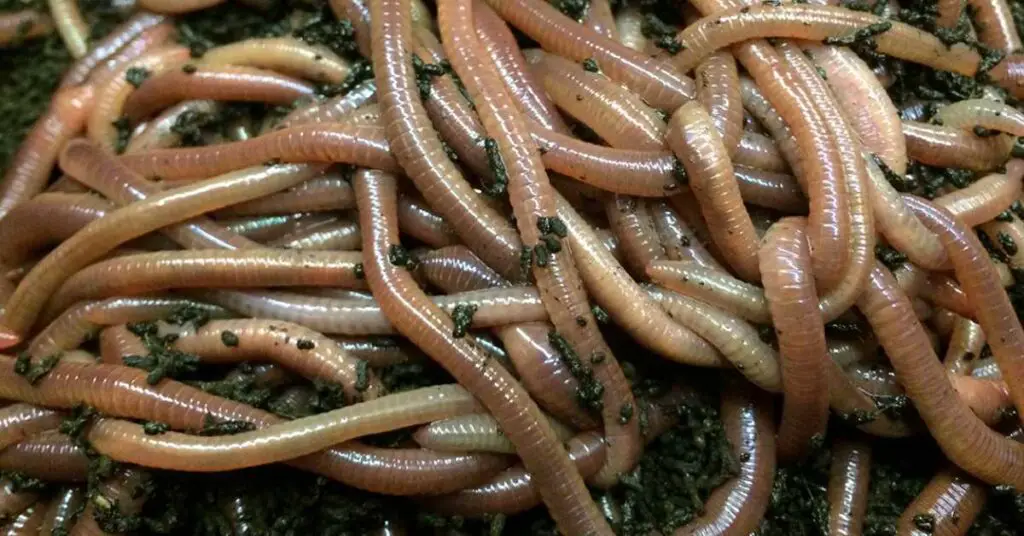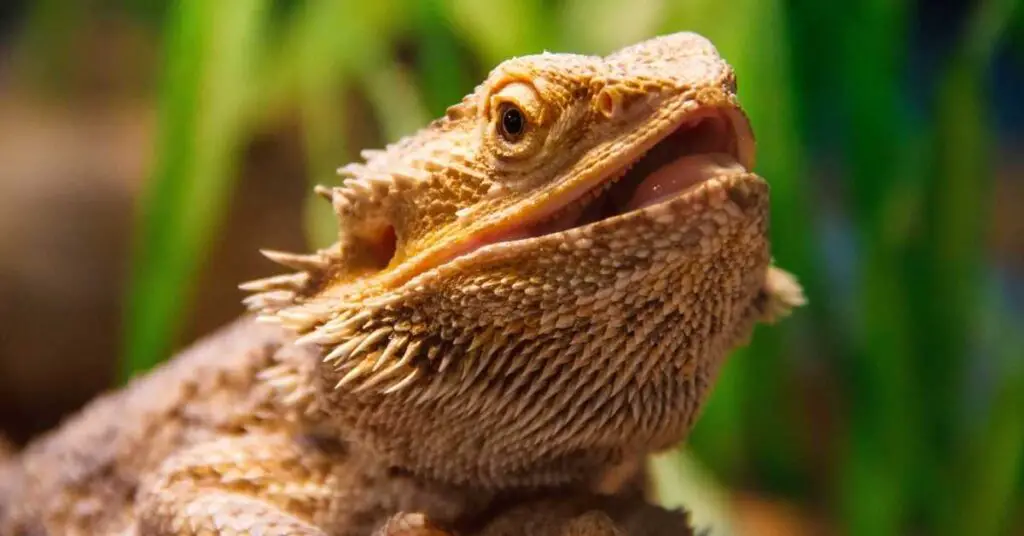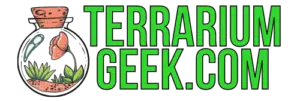Are you wondering if it’s safe for your bearded dragon to munch on nightcrawlers? Well, you’ve come to the right place.
When it comes to the dietary needs of these fascinating reptiles, it’s essential to provide them with a well-balanced and nutritious diet. In this discussion, we will explore the nutritional value of nightcrawlers, the potential benefits of feeding them to bearded dragons, as well as any risks that may be associated with their consumption.
But that’s not all, we’ll also discuss how to prepare these wriggly creatures for your scaly friend and explore other food options that can keep your bearded dragon healthy and happy.
So, let’s dive into the world of bearded dragon nutrition and uncover the truth about nightcrawlers.
Key Takeaways
- Nightcrawlers are a nutritious food source for bearded dragons, providing essential proteins, vitamins, and minerals for growth and bodily functions.
- Feeding nightcrawlers to bearded dragons can support muscle growth, skeletal health, and overall bodily functions.
- However, it is important to avoid overfeeding nightcrawlers to prevent obesity and digestive issues in bearded dragons.
- Before feeding nightcrawlers to your bearded dragon, make sure to rinse them thoroughly and consider providing alternative protein sources for a balanced diet.
Nutritional Value of Nightcrawlers
Nightcrawlers, also known as earthworms (Lumbricus terrestris), are a highly nutritious food source for bearded dragons. These creatures offer numerous benefits to the health and well-being of your beloved reptile.
Nightcrawlers are rich in protein, which is essential for growth, development, and overall bodily function. They’re also a good source of calcium, phosphorus, and other minerals that support strong bones and teeth. Additionally, nightcrawlers contain vitamins such as vitamin A, vitamin E, and vitamin B12, which contribute to a healthy immune system and proper metabolism.
Feeding your bearded dragon nightcrawlers can provide it with essential nutrients it needs to thrive. The high protein content helps promote muscle growth and repair, ensuring your pet remains strong and active. The calcium and phosphorus contribute to skeletal health, preventing issues like metabolic bone disease. The vitamins found in nightcrawlers support various bodily functions, including vision, reproduction, and energy metabolism.
However, it’s crucial to be aware of the potential dangers associated with feeding nightcrawlers to your bearded dragon. As with any food source, moderation is key. Overfeeding nightcrawlers can lead to obesity, digestive issues, and nutrient imbalances. It’s also essential to source nightcrawlers from reputable suppliers to ensure they’re free from harmful pesticides or parasites.

Benefits of Feeding Nightcrawlers to Bearded Dragons
To fully understand the benefits of incorporating nightcrawlers into your bearded dragon’s diet, it’s important to explore the positive impact they have on your reptile’s overall health and well-being. Nightcrawlers serve as a natural source of protein for bearded dragons, making them an excellent addition to their diet.
Protein is an essential nutrient for bearded dragons as it plays a crucial role in their growth, muscle development, and overall energy levels. Nightcrawlers are highly nutritious and contain all the essential amino acids that bearded dragons need to thrive. They’re also rich in vitamins and minerals, including calcium, which is essential for strong bones and egg production in female bearded dragons. By including nightcrawlers in your bearded dragon’s diet, you’re providing them with a balanced and varied source of protein that supports their overall health.
In addition to being a great source of protein, nightcrawlers also promote healthy digestion in bearded dragons. Their high fiber content aids in maintaining a healthy digestive system and prevents issues such as constipation. Nightcrawlers also contain beneficial bacteria that can improve gut health and enhance nutrient absorption in bearded dragons.
Potential Risks of Nightcrawler Consumption
Consuming nightcrawlers may pose potential risks to the health of bearded dragons. One of the primary concerns is the risk of parasites that may be present in nightcrawlers. Nightcrawlers are often found in soil and may harbor parasites such as nematodes or roundworms. These parasites can cause gastrointestinal issues and other health problems in bearded dragons. It’s crucial to ensure that the nightcrawlers fed to bearded dragons are properly sourced and free from any potential parasites.
Another potential risk of nightcrawler consumption is the possibility of allergies. Bearded dragons, like humans, can have allergies to certain foods. While it’s relatively rare for bearded dragons to be allergic to nightcrawlers, it’s still a possibility. Allergies can manifest as skin irritations, respiratory issues, or digestive problems. If you notice any unusual symptoms after feeding your bearded dragon nightcrawlers, it’s important to consult with a veterinarian to determine if an allergy is the cause.
To minimize the risks associated with nightcrawler consumption, it’s recommended to purchase them from reputable sources that ensure the worms are parasite-free. Additionally, it’s important to introduce new foods gradually and monitor your bearded dragon for any adverse reactions. By being aware of the potential risks and taking necessary precautions, you can help ensure the health and well-being of your beloved bearded dragon.
How to Prepare Nightcrawlers for Your Bearded Dragon
To prepare nightcrawlers for your bearded dragon, it’s essential to ensure they’re properly cleaned and gut-loaded before feeding. Nightcrawlers, also known as earthworms, can be a nutritious addition to your bearded dragon’s diet. Follow these steps to ensure the nightcrawlers are safe and beneficial for your pet:
- Clean the nightcrawlers: Before offering them to your bearded dragon, make sure to rinse the nightcrawlers thoroughly with water. This helps remove any dirt or debris that could be harmful to your pet.
- Gut-load the nightcrawlers: In order to provide optimal nutrition, it’s important to feed the nightcrawlers with nutritious foods. This process, known as gut-loading, enhances the nutritional value of the insects. Offer them a variety of vegetables, fruits, and grains for at least 24 hours before feeding them to your bearded dragon.
- Provide alternative protein sources: While nightcrawlers are a good source of protein, it’s important to offer a diverse diet to ensure your bearded dragon receives all the necessary nutrients. Consider incorporating other live insects, such as crickets, mealworms, or dubia roaches, into your pet’s diet. This variety helps promote a balanced and healthy diet for your bearded dragon.

Other Food Options for Bearded Dragons
After ensuring your bearded dragon has a well-prepared meal of gut-loaded nightcrawlers, it’s important to explore other food options that can provide a balanced and nutritious diet for your pet. While nightcrawlers are a great source of protein, offering a variety of food items can help meet your bearded dragon’s nutritional needs.
When it comes to fruits, there are several options that are safe and beneficial for bearded dragons. Some of the best fruits for bearded dragons include papaya, mango, and blueberries. These fruits aren’t only tasty but also provide essential vitamins and minerals. It’s important to remember that fruits should be offered in moderation as they’re high in sugar.
In addition to fruits, there are alternative protein sources that can be included in your bearded dragon’s diet. Crickets and mealworms are common options and can be easily purchased from pet stores. However, it’s important to properly gut-load these insects before feeding them to your bearded dragon to ensure they’re providing optimal nutrition. Other alternative protein sources include dubia roaches, silkworms, and phoenix worms.
Frequently Asked Questions
Do Bearded Dragons Need to Eat Nightcrawlers to Thrive?
You don’t need to feed nightcrawlers to your bearded dragon for them to thrive. While nightcrawlers can offer nutritional benefits, it’s important to control the feeding frequency and portion size to maintain a balanced diet.
Can Bearded Dragons Eat Nightcrawlers as Their Primary Source of Protein?
Bearded dragons can eat a variety of insects as their primary source of protein, including nightcrawlers. However, it is important to offer a balanced diet with different types of insects and not rely solely on nightcrawlers. They can also be fed nightcrawlers as a treat.
Are Nightcrawlers a Suitable Food Option for Bearded Dragons With Dietary Restrictions?
Nightcrawlers can be a suitable food option for bearded dragons with dietary restrictions. They are low in fat and high in essential nutrients, providing a balanced diet. However, it’s important to consult a veterinarian for specific dietary recommendations.
What Are Some Alternative Food Options for Bearded Dragons Besides Nightcrawlers?
There are several alternative protein sources for bearded dragons besides nightcrawlers. These options provide different nutritional values, ensuring a balanced diet. Incorporating insects like crickets or mealworms, as well as fresh vegetables, can offer the necessary nutrients for your pet’s health.
Are There Any Specific Precautions or Considerations When Feeding Nightcrawlers to Bearded Dragons?
When considering feeding nightcrawlers to your bearded dragon, it is important to take precautions and consider alternative food options. Take into account any dietary restrictions your dragon may have before introducing nightcrawlers into their diet.
Conclusion
In conclusion, while nightcrawlers can be a valuable addition to a bearded dragon’s diet due to their high nutritional value and benefits for their overall health, there are potential risks associated with their consumption.
It’s important to properly prepare nightcrawlers and ensure they’re sourced from reputable sources. This means avoiding nightcrawlers that may have been exposed to pesticides or other harmful substances. It’s also crucial to thoroughly wash and gut-load the nightcrawlers before feeding them to your bearded dragon.
Additionally, it’s essential to provide a varied diet for bearded dragons, offering other food options to ensure they receive a balanced and complete nutritional intake. While nightcrawlers can provide important nutrients, they should not be the sole component of a bearded dragon’s diet. Vegetables, fruits, and other insects should also be included to provide a diverse array of nutrients.
Overall, nightcrawlers can be a beneficial addition to a bearded dragon’s diet, but it’s important to be mindful of potential risks and to offer a well-rounded diet to ensure your bearded dragon’s health and well-being.

